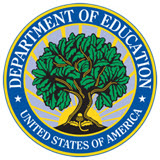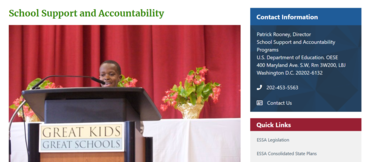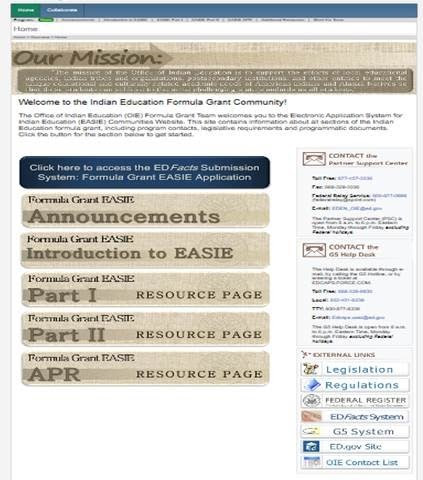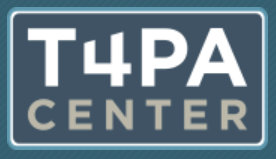
July 2020, Volume 1, Issue 6
Office of Elementary and Secondary Education
Office of State Grant and Program Support Newsletter

From the Deputy Assistant Secretary
Letter From Ruth Ryder, Deputy Assistant Secretary for the Office of State Grant and Program Support

Dear Partners and Stakeholders:
The summer is upon us and hopefully you were able to celebrate the 4th of July. For many of us it may have been a different celebration than in years past, but I hope you were able to find new ways to enjoy your holiday weekend. My family usually attends a fun neighborhood parade and “fun-fest,” but unfortunately we missed it this year.
The past several weeks have been a challenging time for our country. Reflecting upon the underlying reasons for the unrest has made me ever more aware of the importance of the work we all do on behalf of children and youth who are disadvantaged. Our programs—from Title I to migrant to homeless to Indian education—are the cornerstone for success for these children and youth. As stated so well by Secretary DeVos: “Racism and bigotry have no place in our nation or our world, and racial injustices must come to an end. As a nation, we can and must do better, especially for our children. We must model the behaviors we want them to emulate as we teach them to love and respect one another. It also connects directly to our work. Each day, we strive to ensure all students have equal access to a safe, nurturing, quality learning environment, free from discrimination. We fight to create opportunity for those children and families who are invisible to or forgotten by too many. The diverse perspectives each of you bring to that work is critical to our success.”
The U.S. Department of Education (Department) funds the Equity Assistance Centers (EACs), which provide technical assistance and training, upon request, in the areas of race, sex, national origin, and religion to public school districts and other responsible governmental agencies to promote equitable education opportunities. This assistance helps schools and communities ensure that equitable education opportunities are available and accessible for all children. Requests for assistance must come from the governmental agency legally responsible for operating a public school or schools—e.g., school boards, state education agencies (SEAs), and local education agencies (LEAs). The COVID-19 crisis has disproportionately burdened students and families from minority populations, who have experienced elevated rates of illness and death due to the virus. The EACs have developed a range of resources responsive to the needs of vulnerable populations to meet these demands and challenges. You can find contact information for the EACs here.
Although it’s summer, the Office of State Grant and Program Support (OSGPS) is very busy making formula and discretionary grant awards. In this newsletter you will find information on the latest grant competitions and formula grant awards. We will continue to share updates on grant competitions and awards through the end of the fiscal year.
Speaking of busy, the Office of Elementary and Secondary Education (OESE) is hiring to support all the work we have been charged with under the Coronavirus Aid, Relief, and Economic Security (CARES) Act. Find out more about these opportunities below.
Finally, with discretionary grant competitions, there is always the need to find good peer reviewers, and this year is no different. If you haven’t served as peer reviewer, please consider it. It’s a great opportunity to learn firsthand about the peer review process and to support the education community by ensuring high quality projects are selected.
All the best –
Ruth Ryder
|

COVID-19 Resources for Educators

CARES Act Update
As part of its work to implement the CARES Act, the Department has awarded grants under two programs that will be managed in the Office of State and Grantee Relations (OSGR) in OESE: the Elementary and Secondary School Emergency Relief (ESSER) Fund, and the Governor’s Emergency Education Relief (GEER) Fund. Below, SGR reports the number of formula grant awards made as of July 2:
- Elementary and Secondary School Emergency Relief Fund (ESSER)
- 50 states, the District of Columbia, and the Commonwealth of Puerto Rico have received grants
- Governor’s Emergency Education Relief Fund (GEER)
- 50 states and the District of Columbia have received grants
|


CARES Act Temporary Job Opportunities
The Office of Personnel Management issued guidance to permit federal agencies to hire temporary staff to respond to the COVID-19 pandemic. Under these hiring flexibilities, the Department is hiring 16 temporary employees to work on CARES Act programs in OESE.
Anyone who is interested in a one year appointment can send their resume to caresactjobs@ed.gov for consideration.
|
 

Webinar: Strategies for Districts to Support Self-Care for Educators During the COVID-19 Pandemic
Strategies for Districts to Support Self-Care for Educators During the COVID-19 Pandemic is a webinar geared towards school district leaders. In this Regional Educational Laboratory West recording, presenters share practical information and guidance backed by research to help school staff cope with the stresses of school closures, service provision, and quarantine due to the COVID-19 pandemic. Healthy mindsets, connectedness and belonging, and healthy boundaries and interactions are among the strategies addressed. This webinar is the first in a three-part series on supporting the social and emotional needs of educators and students during and after the COVID-19 pandemic.
|


New OESE Resources Page
This month, OESE launched a new resource page to support states, districts, schools, and families as they navigate K–12 education during the challenging times of COVID-19. The resources represent a collection of work being done across OESE Technical Assistance Centers and are grouped by topic and target audience. The initial collections include topics most relevant to support learning during the pandemic: continuity of learning, learning at home, safe school environments, social, emotional and behavioral support, supporting special populations, and returning to school. We are excited to launch this new resource, and we anticipate that it will continue to be developed and updated on an ongoing basis. Please check out the new resource page and contact us if you have suggestions for additional topics or functionality that could be useful to you.
In addition to OESE’s resource page, the Department's COVID-19 website continues to provide important information and resources for schools and school personnel. Finally, OESE’s partners in the Office of Special Education Programs (OSEP) and the Institute of Education Sciences (IES) have launched their own resources pages for COVID-19. The three offices worked in collaboration to launch these pages:
|

Monthly Office Spotlight: Office of School Support and Accountability

The Office of School Support and Accountability (OSSA) administers a variety of programs established under the ESEA. OSSA programs focus on providing equitable opportunities and outcomes for all students, particularly low-achieving and low-income students, and closing achievement gaps. These programs include:
Title I, Part A: The Title I, Part A program (Title I) is the largest grant program in the Department. It provides funding to school districts and schools with high numbers or high percentages of children from low-income families.
Title I, Part B: The Assessment Team oversees state efforts to establish challenging academic standards and develop aligned assessments, including both formula and competitive grant programs. The Assessment Team also oversees the Innovative Assessment Demonstration Authority, a special authority that allows a small number of states to pilot innovative approaches to state assessments.
Title I, Part D: The Title I, Part D program seeks to improve education for children and youth who are neglected, delinquent or at-risk. The program provides resources to the field through the National Technical Assistance Center for the Education of Neglected or Delinquent Children and Youth. It will host virtually this year the annual U.S. Department of Education Title I, Part D Coordinators Conference.
Title II, Part A: The Title II, Part A program primarily funds states and districts to provide quality professional development to teachers, principals, and other staff to improve academic achievement in K–12 schools. School districts may also use program funding to support class size reduction as well as recruitment and retention activities for school staff.
Title III, Part A: The Title III, Part A program is designed to improve the education of English learners (ELs) so they can meaningfully participate in English in their classrooms and meet their state’s academic content and student academic achievement standards. For more resources, visit our EL Resources Page.
Education for Homeless Children and Youth (EHCY): The EHCY program, established by the McKinney-Vento Homeless Assistance Act, focuses on providing support for homeless children and youth and identifying the impediments they must overcome in order to regularly attend school. A key resource is the National Center for Homeless Education. The EHCY team also recently released the Federal Data Summary for school years 2015–16 through 2017–18.
Foster Care: The Foster Care Program supports the implementation of the requirements in Title I Part A, to provide education stability for students in foster care, focusing on partnerships between SEAs, LEAs, and child welfare agencies. The Foster Care Team recently announced a virtual convening for state foster care points of contact from Aug. 3 to 5.
Title IV Part B: Also known as the Nita M. Lowey 21st Century Community Learning Centers (21st CCLC), the 21st CCLC program provides funding to states to create community learning centers that provide academic enrichment opportunities during non-school hours for children, particularly students who attend high-poverty and low-performing schools. The You for Youth learning portal provides online learning and technical assistance, including downloadable micro-learning packages (“Click & Go”) focused on such topics as literacy, project-based learning, science, technology, engineering, and mathematics (STEM), and safety issues.
|

Technical Assistance Resources and Updates

Impact Aid Program Welcomes New Director
On May 25, Faatimah Muhammad became the Director of the Impact Aid Program at the Department, upon Marilyn Hall's retirement.
Muhammad joined the Department in 2015. Most recently, she served as a supervisory education program specialist in the Office of School Support and Accountability in OESE.
“I’m excited to join the Impact Aid Team and give my best for America’s federally connected school districts,” said Muhammad.
Prior to joining the Department, she worked as an instructional systems specialist at the U.S. Department of Defense Education Activity’s Office of Student Support Services and Special Education Branch. In addition to her work in the federal government, Muhammad has experience at the local level and in the private sector, largely with special populations. She worked as a consultant and assistant director for the AVID Center and began her career in public education in DeKalb County Schools, where she held the positions of high school science teacher, building-level administrator and K–12 science coordinator.
Please join us in welcoming Faatimah Muhammad to the Impact Aid Program!
Visit the Impact Aid Program Website for more information.
|

Office of Indian Education Title VI Resources
In effort to provide on-going technical assistance to our grantees, the Office of Indian Education’s (OIE’s) Title VI Formula Grant Program has developed a robust online community of practice website and grantee portal. This site is filled with current Title VI resources, including OIE program officer contact information, statutes and regulations, frequently asked questions, training webinars, applications, annual performance reports, broadcast email archives, a calendar of upcoming events, and much more. OIE values grantee feedback on how to improve this site to best meet and exceed grantee needs. Please feel free to send those suggestions to the Partner Support Center via the contact information at https://easie.grads360.org/.
|

New Twitter Account for T4PA
The Title IV, Part A Center (T4PA) is pleased to announce the launch of its official Twitter profile to promote public awareness of services and disseminate information, resources, and events from the T4PA Center. The new Twitter profile will help the center engage with SEAs, stakeholders, federal partners, and organizations with similar goals, and promote activities relating to Title IV, Part A. The Twitter account is @T4PACenter and can be found at https://twitter.com/T4PACenter.
|

New Report: The Condition of Education 2020
NCES released The Condition of Education (2020), a congressionally mandated report to the country on education in America today. The report presents 47 indicators under four areas: pre-primary, elementary, and secondary education; postsecondary education; population characteristics and economic outcomes; and international comparisons. In years past, it has also spotlighted several issues of policy interest (blog post).
For a snapshot of key information, check out the Executive Summary and "At a Glance" options.
|

Upcoming Due Dates and Events
Due Dates and Competitions

Fiscal Year 2018 Small, Rural School Achievement Performance Period Extensions
To assist rural local LEAs as they face unprecedented challenges due to school closures and disruptions caused by COVID-19, the Department is extending the performance period for unobligated Small, Rural School Achievement (SRSA) grants awarded in fiscal year (FY) 2018. The obligation deadline for unobligated SRSA grants awarded in FY 2018 is now Sept. 30, 2021, and the liquidation deadline is now Dec. 30, 2021. If your LEA has unobligated FY 2018 SRSA funds, those funds are now available in G5.
Additionally, the Department has extended the performance period for all SRSA grants awarded in FY 2019, and all subsequent SRSA awards, by an additional 12 months. Starting with FY 2019 funds, SRSA grantees have 27 months to obligate SRSA grant funds. If you have any questions or concerns, please see the Department’s website or contact the State and Grantee Relations Office, using the mailbox that corresponds to the state in which your organization operates using the format [statename].OESE@ed.gov (for example, Michigan.OESE@ed.gov).
|

Peer Reviewers Needed: School-Based Mental Health Services Grant Program
The Department is seeking qualified reviewers to participate in the peer review process for the FY 2020 School-Based Mental Health Services Grant Program (SBMHGP). The SBMHGP provides competitive grants to SEAs to increase the number of school-based mental health service providers (counselors, social workers, psychologists, or other school-based mental health service providers) in LEAs with a demonstrated need for these services. Applications must include plans to address the recruitment and retention of service providers placed within LEAs.
The Department seeks qualified peer reviewers who have expertise and experience in the following areas: school psychology, school counseling, school social work, school mental health, telehealth, trauma, project design and implementation, American Indian/Alaska Native students, and rural school programs.
The anticipated dates for the review period are July 20–24.
The Department uses a web-based tool that allows peer reviewers to complete their online reviews of applications, the G5 system. Interested reviewers should do the following:
- Make sure you have an active, updated account in G5 (www.g5.gov). Be sure to update your resume and make sure your email address is accurate.
- Indicate your interest by emailing a current resume to OESE.School.Mental.Health@ed.gov.
|

Notice Inviting Applications and Pre-Application Webinars: State Tribal Education Partnership Grants
On June 1, the Department issued a notice inviting applications for FY 2020 for the State Tribal Education Partnership Grant Program (STEP). The purpose of STEP is to promote the coordination and collaboration of Tribal educational agencies (as defined in the official notice) with SEAs and LEAs to meet the unique education and culturally related academic needs of Indian students.
The deadline to submit applications is July 31.
In June, the Office of Indian Education held two pre-application, interactive Q&A webinars for potential applicants to STEP FY 2020. The overall purpose of the webinars was to (1) familiarize the potential applicant with established guidelines and criteria for review, (2) discuss the areas of STEP programmatic emphasis, and (3) facilitate the submission of a well-organized application. Visit our <a href="https://lnks.gd/l/eyJhbGciOiJIUzI1NiJ9.eyJidWxsZXRpbl9saW5rX2lkIjoxMzQsInVyaSI6ImJwMjpjbGljayIsImJ1bGxldGluX2lkIjoiMjAyMDA3MDguMjQwNzQ4NzEiLCJ1cmwiOiJodHRwczovL29lc2UuZWQuZ292
![]()
About the Author
Ruth Ryder is the Deputy Assistant Secretary for the Office of Office of State Grant and Program Support in the Office of Elementary and Secondary Education (OESE) at the U.S. Department of Education. In this role, Ms. Ryder oversees a broad range of management, policy, and program functions related to formula and discretionary grant programs under the Elementary and Secondary Education Act, as amended by the Every Student Succeeds Act (ESEA). Ms. Ryder was previously the deputy director of the Office of Special Education Programs in the Office of Special Education and Rehabilitative Services, which she joined in 1988. Prior to joining the Department, Ms. Ryder was a program administrator in a Washington state school district. There she had responsibility for the Elementary and Secondary Education Act Title 1 and Title II programs, state-remediation, gifted education, outcome-based education, and state- and district-wide testing programs. Ms. Ryder has a bachelor’s degree in psychology and elementary education and a master’s degree in special education.
Read next
Projects & Events
Bruman Group Spring Forum | April 29th - May 1st
USED & White House
President Signs Executive Order to Dismantle ED
USED & White House
ED Releases Guidance on Inclusive Practices Under IDEA and ESEA
| |




















